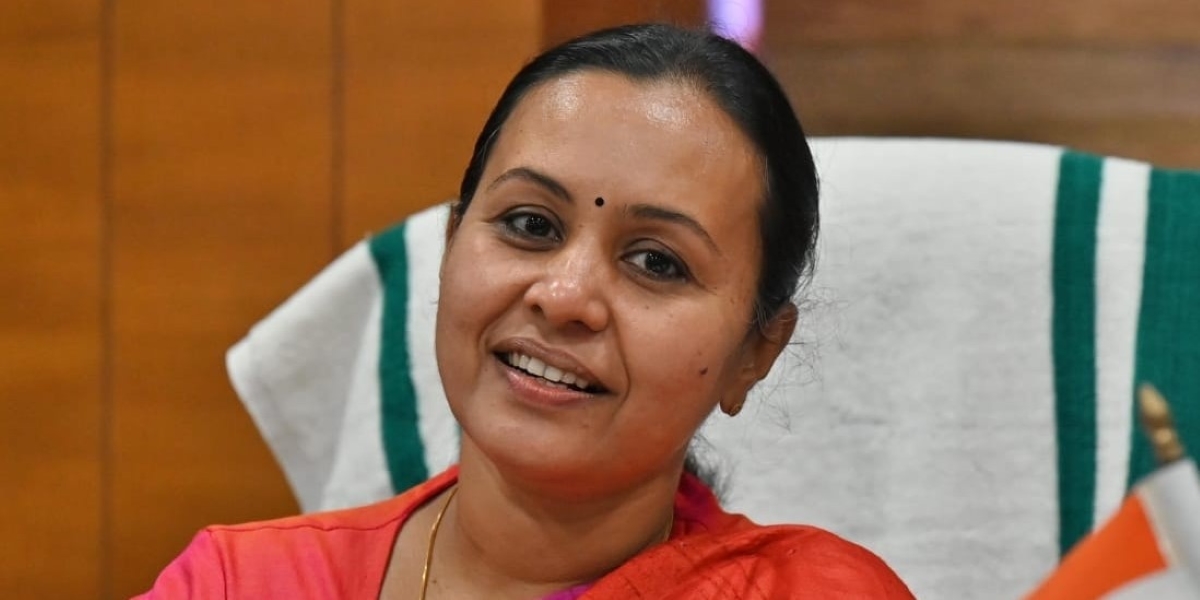In the wake of a massive fire that struck Kuwait on June 12, 2024, claiming the lives of 49 individuals, including 23 from Kerala Minister Denied, the Indian central government’s decision to deny Kerala’s Health Minister Veena George permission to visit the Gulf nation has sparked political controversy. The fire, which broke out in a six-story building in Mangaf city, Kuwait, led to the deaths of several Indian nationals, many of whom were from Kerala. This incident has not only left the state grieving but has also ignited a fierce debate over the handling of the crisis by both the state and central governments.
The Tragic Incident in Kuwait
On June 12, 2024, a devastating fire broke out in a residential building in Mangaf, Kuwait, which led to widespread panic and chaos. The fire resulted in the loss of 49 lives, and a large number of those killed were Indian nationals. Among the victims, 23 individuals were from the Indian state of Kerala. The victims had been residing in the building, which housed a significant number of migrant workers. Many of those affected by the fire were part of Kerala’s large expatriate community working in the Gulf.

The tragedy has sent shockwaves throughout Kerala, a state with deep ties to the Gulf countries, especially Kuwait. Thousands of Keralites work in various sectors in Kuwait, and the news of this fire has caused immense grief among the local population.
Kerala Government’s Response and Denial of Permission
In response to the tragedy, the Kerala government moved quickly to provide support to the victims and their families. The Kerala Cabinet convened an emergency meeting on June 13, 2024, and made the decision to send Health Minister Veena George and State Mission Director Jeevan Babu to Kuwait. Their mission was to coordinate relief efforts, assist in the medical treatment of the injured, and oversee the repatriation of the deceased back to India.
However, despite the urgency of the situation, the Ministry of External Affairs (MEA) in New Delhi denied the necessary political clearance for Minister Veena George to travel to Kuwait. According to sources, Minister George was left stranded at Kochi International Airport for several hours as she awaited permission to board her flight. Unfortunately, she was forced to cancel her trip when the clearance did not arrive in time.
This decision has caused frustration and disappointment among the people of Kerala, especially in light of the significant loss of life. Many felt that the presence of a state representative on the ground would have helped coordinate better assistance and showcased Kerala’s concern for its citizens abroad.
Political Backlash and Criticism
The central government’s refusal to allow the Kerala minister to travel has sparked widespread outrage from various political parties and leaders, particularly from the ruling Left Democratic Front (LDF) in Kerala. Chief Minister Pinarayi Vijayan has expressed his dissatisfaction with the decision, stating that the refusal was inappropriate, especially considering the gravity of the situation. In a statement, he said, “In my opinion, there has been a wrong approach by the Centre. But this is not the time to rake up a controversy.” His comments suggest that while the decision was viewed as an error, the government prioritized immediate relief efforts over political squabbles.
Leader of Opposition V D Satheesan, a prominent figure from the Congress party, also criticized the Centre’s stance. He emphasized that the presence of a state minister would have helped in facilitating smoother coordination between the local and central authorities. Satheesan argued, “A representative of the state government would have helped to better coordinate the relief efforts and ensure that the needs of the victims were met swiftly.”
Minister Veena George, who was visibly disappointed by the Centre’s denial, expressed her frustration on social media. She pointed out that the victims of the fire were largely from Kerala and that her presence in Kuwait would have been beneficial in coordinating the repatriation of bodies and providing medical assistance to the survivors. “I deeply regret not being able to travel and offer my support to the families affected by this tragedy,” she said in her statement.
The Centre’s Defense and Justification
On the other hand, the central government defended its decision to deny permission for the minister’s visit, arguing that it was unnecessary for a state minister to travel to Kuwait. BJP state president K Surendran justified the move by asserting that the Ministry of External Affairs had already sent a Union minister to Kuwait to manage relief operations. Surendran stated, “There was no need for a state representative to go, as a Union minister was already on the ground, handling the situation.”
Governor Arif Mohammed Khan also weighed in on the issue, supporting the Centre’s decision. He questioned the necessity of the Kerala minister’s visit, stating that the Union government had already sent its own officials to ensure that the relief efforts were effectively managed. He further stated that the Kerala government’s request was merely a political move and did not serve any practical purpose.
While the Union government’s stance reflects the official position, it has not helped calm the rising tensions between the state and central authorities. The debate highlights the broader issue of the relationship between the two levels of government, especially in times of crisis. The refusal to grant permission for the minister’s visit underscores the challenges of coordinating relief operations during international emergencies.
The Bigger Picture: Federal-State Relations
The controversy over the Kerala minister’s visit to Kuwait touches on larger issues of federal-state relations in India. While the central government’s decision is based on the argument of administrative efficiency, the state government and political critics argue that the federal system should allow for more local autonomy in responding to crises that directly affect the people of the state.
Kerala has a long history of migration to the Gulf region, and many Keralites consider the Gulf countries their second home. The tragic fire in Kuwait has highlighted the need for more cohesive and effective coordination between the central and state governments, particularly when dealing with crises that impact Indian expatriates abroad.
The situation has also raised questions about the speed and effectiveness of crisis management in India. While the central government has the resources and authority to handle international emergencies, the involvement of state governments is often seen as crucial, especially when dealing with issues that directly affect their citizens.
Conclusion
The denial of permission for Minister Veena George’s visit to Kuwait has ignited a political firestorm, with both the Kerala government and the Opposition criticizing the Centre’s decision. As the tragedy in Kuwait unfolds, questions remain about the coordination and communication between the state and central authorities. The debate over the minister’s visit serves as a reminder of the complexities and challenges that arise in times of national and international crises.
As Kerala continues to mourn the loss of its citizens in Kuwait, the situation calls for greater collaboration and transparency between various levels of government to ensure that the affected families receive the support and relief they deserve. While political differences may exist, the priority should always be to address the needs of the victims and their families in a timely and compassionate manner.
This unfolding story continues to captivate public attention, and the coming days may bring more developments on this contentious issue.



